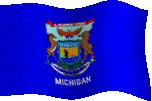COURT ORDER
BANNING SMOKING
SO AS TO ACHIEVE
A SAFE JOBSITE


And as a third protective law against killing people, in the workplace, the Occupational Safety and Health Act of 1970, 29 USC § 651 - § 678 forbids hazards. Rules such as 29 CFR § 1910.1000 provide specific examples of hazards such as carbon monoxide (limit of 50 parts per million). An employer has a duty to prevent and suppress hazardous conduct by employees. National Realty and Construction Co, Inc v Occupational Safety and Health Review Commission, 160 US App DC 133, 489 F2d 1257, 1266, n 36 (CA DC, 1973).
Employer compliance is mandatory, not optional. Relative to the TTS hazard, indeed all hazards, an employer must comply with the "duty to prevent and suppress" that hazard in particular, as unlike perhaps other allged hazards, "the detrimental effects of cigarette smoking on health are beyond controversy." Larus and Brother Co v Federal Communications Commission, 447 F2d 876, 880 (CA 4, 1971).
In fact, the TTS hazard is so obvious that it is negligence for the employer to even hire smokers. Nonsmoker Donna Shimp had won a TTS similar case years before, following already existing precedents.


| Incidentaly, this deterioration also means much higher costs including for health care, as smokers have more accidents and higher sickness rate. Thus vehicle costs go up, causing effects including out-sourcing pressures. |
IN THE CIRCUIT COURT FOR THE COUNTY OF WAYNE LEONARD A. PERKINS, vs. Case No. 86-633018 CZ
FORD MOTOR COMPANY, et al. Hon. Helene N. White
Leonard A. Perkins
Kermit G. Bailer (P 24737)
Approved as to Form and Substance: /s/Leonard A. Perkins
Kermit G. Bailer
Dated: November 24, 1986 |
The decision follows that of Shimp v New Jersey Bell Telephone Co, 145 N J Super 516; 368 A2d 408 (1976).
Soon another case followed hers, also requesting a court order directing compliance with the safety laws. That case was in Missouri and entitled Paul Smith v Western Electric Co, 643 SW2d 10 (Mo App, 1982).
In Michigan, about three months earlier than the herein-cited Perkins case, there had just been the case of Lauren Hall v Veterans Administration, EEOC Case No. 054-086-X0097 (Detroit, 5 Sep 1986).

Data From 1925 |
|
|
|
|
"Are You Missing $omething?,"
26 Smoke Signals 4 (Oct 1980)
consolidating in one narrative, data from a multiplicity of sources, refuting the then notion that cigarettes are a cost plus to society |
"Smoking as hazardous conduct,"
86 N Y St J Med 493 (September 1986)
|
"[Indoor Air Quality] IAQ Already Regulated,"
3 Indoor Air Rev 3 (April 1993)
|
"Alternative Models for Controlling Smoking Among Adolescents,"
87 Am J Pub Health 869-870 (May 1997)
by doing for them as for all other people: a law providing that only safe products be manufactured, given away, and sold |
More Participants Welcome |
This site is sponsored as a public service by
Copyright © 1999 Leroy J. Pletten
The Crime Prevention Group